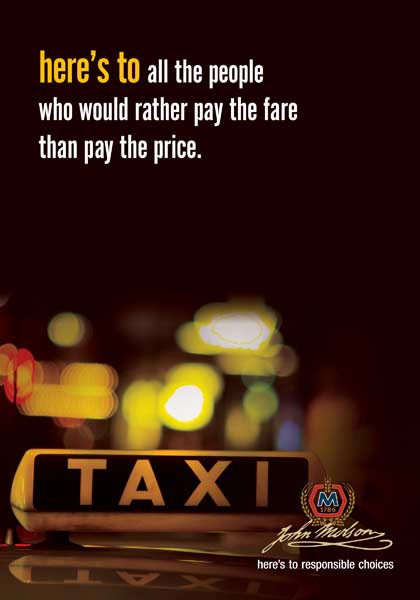
 Here at Socialbrite, we’re always looking for sterling examples of how the corporate sector is contributing in genuine ways to the social good. Those bridges between the for-profit and nonprofit/social good sectors are becoming increasingly vital.
Here at Socialbrite, we’re always looking for sterling examples of how the corporate sector is contributing in genuine ways to the social good. Those bridges between the for-profit and nonprofit/social good sectors are becoming increasingly vital.
So I was jazzed to see the presentation by Beth Kanter and Kami Huyse of Zoetica yesterday at NewComm Forum in San Mateo, Calif., on what they’re calling “lethal generosity” (a term from Shel Israel’s “Twitterville”). The discussion provided some clarity around the difference between corporate social responsibility, cause marketing and what the Zoetica folks call lethal generosity: “when a corporation applies its core competencies to advance social change in a way that contributes to business results and gives it a competitive advantage.”
Without going into whether the term will catch on (I think it probably won’t — it’s really just CSR done right), here are four fantastic examples of how large companies have been contributing to the social good in compelling ways:
Molson Coors & responsible drinking

1.Over the years, Molson Coors Canada has used CSR to advance its brand — and is one of the few major corporations to take advantage of social media in doing so. (Shel Israel wrote about Molson in his book Twitterville.) As Beth mentioned yesterday, Molson Coors invests more in responsible drinking education than on alcohol-centered events. Molson reaches out to the community to find ways to spread the message of responsible drinking, putting money behind the TaxiGuy program (for those who’ve had one too many) and covering the cost of free public transit on New Year’s Eve.
Shel recounts the story of the holiday season of 2008 when the Toronto Transit Authority canceled its New Year’s Eve free-ride transportation because of budget cuts. Molson stepped in and launched a campaign to replace public funding with private sector donations, starting with its own $20,000 donation.
Molson has a small social media team led by Ferg Devins, who is not only responsible for selling beer but for outreach to communities in need. The team uses Twitter and blogging to initiate community generosity projects.
• Molson’s Responsible Drinking Program (see image at top)
• Molson Coors blog — they even have a Socialbrite-style Twitter conversation widget at the right
• @molsonferg on Twitter (Ferg Devins)
• Molson Canadian Facebook page
Tyson Foods & hunger relief

2.Tyson Foods offers another example of a major company tying its corporate social responsibility efforts to its core mission. Tyson has committed its brand to efforts to relieve and ultimately end childhood hunger, and in the past few years been integrating social media into its hunger relief efforts.
Tyson connected with the Social Media Club and began a string of extraordinarily smart and effective efforts to enlist the community. For example, it launched a campaign in Austin in which it agreed to donate 100 pounds of chicken to the Capital Area Food Bank of Texas for every comment posted on its blog. They received 658 comments in two hours and loaded up two trucks filled with chicken for the hungry, Beth said. They repeated the success in Boston and San Francisco, launched a user-generated video contest in Minnesota and sponsored a day of service for its social media team.
• Tyson Hunger Relief Blog
• Tyson Hunger Relief: Our Commitment
• Tyson Hunger Relief blog post on outside Twitter accounts involved in hunger relief
• Tyson Hunger Relief on Twitter (Ed Nicholson)
• Tyson Foods Hunger Relief on Facebook
• Sustainability – It’s In Our Nature: Report on Tyson Foods’ economic, social and environmental efforts (PDF)
Haagen-Dazs & honeybee preservation
3. Honeybees are disappearing at an alarming rate — and that’s bad news for the global food chain. Haagen-Dazs decided to create a microsite to raise awareness about the issue: “Honey bees are responsible for pollinating one-third of all the foods we eat, including many of the ingredients that define our all-natural ice creams, sorbets, frozen yogurt and bars.” Again, smartly tying it back to the company’s core mission.
Honeybees are disappearing at an alarming rate — and that’s bad news for the global food chain. Haagen-Dazs decided to create a microsite to raise awareness about the issue: “Honey bees are responsible for pollinating one-third of all the foods we eat, including many of the ingredients that define our all-natural ice creams, sorbets, frozen yogurt and bars.” Again, smartly tying it back to the company’s core mission.
The company is donating a portion of proceeds from its Haagen-Dazs honeybee brand to research on the topic, and it launched a modest Twitcause campaign through the #HelpHoneyBees hashtag, raising $7,000 in two days last November (“Bee Buzz generated: 643,748 tweets”).
• Help the Honeybees microsite
Greenopolis & recycling
4. Greenopolis was developed to serve as an educational tool to teach people how to be more environmentally sound as they go about their daily lives. The goals for the Web site are summed up in its tagline: “Learn. Act. Reward. Together.” Greenopolis was created by, and is wholly owned by, Waste Management Recycle America, but operates independently. Last year, Beth said, they took part in a Social Media Breakfast in Houston.
Greenopolis was developed to serve as an educational tool to teach people how to be more environmentally sound as they go about their daily lives. The goals for the Web site are summed up in its tagline: “Learn. Act. Reward. Together.” Greenopolis was created by, and is wholly owned by, Waste Management Recycle America, but operates independently. Last year, Beth said, they took part in a Social Media Breakfast in Houston.
Greenopolis has a presence on several social media sites, offers a daily look at some interesting metrics (Total tons of WMRA recycled: 5,367,009), offers on-street recycling kiosks and has a rewards program (Think Green Rewards earned: 4,074,988) that lets people cash in points for small items. “You get points for blogging, they use the community to create content and they license their logo to qualifying organizations like the Green Housekeeping seal of approval,” Beth said.
• Greenopolis on Twitter
• Greenopolis Facebook page
• Greenopolis YouTube channel
Related
• Beth Kanter: What is Lethal Generosity?
• Kami Huyse: Definition of Lethal Generosity
• Pamela Hawley & JD Lasica on BlogTalkRadio: The power of giving & corporations doing social good
• Transcript of podcast on corporate social responsibility
JD Lasica, founder and former editor of Socialbrite, is co-founder of Cruiseable. Contact JD or follow him on Twitter or Google Plus.
 This work is licensed under a Creative Commons Attribution 3.0 Unported.
This work is licensed under a Creative Commons Attribution 3.0 Unported.










Tyson Foods is socially responsible? The EPA recently filed an enforcement action against them for violating the Clean Air Act, and they previously have plead guilty to 20 felony violations of the Clean Water Act. Their labor practices have been criticized by no less than Human Rights Watch. And of course they tie their community efforts to their mission. It's a form of marketing.
It's absolutely a form of marketing, though I would argue that a CSR effort that goes to the company's core mission is more genuine than a tack-on cause marketing campaign that serves as a one-off publicity stunt.
Taken with their other social media efforts, Tyson Foods seems to be genuine in its outreach to the community. But, of course, as you point out, such efforts don't ameliorate major failings in other areas. Thanks for the reminder.
The Human Rights Watch was from 2003-2004 http://www.hrw.org/en/node/11869/section/2
I couldn't find any follow up as to whether they resolved the problem or not?
There's also Tyson and Peta issue as well http://www.sourcewatch.org/index.php?title=Tyson_…
And, Waste Management has some labor issues too http://blog.taragana.com/science/2010/04/21/seatt…
Good to know! Nothing's black and white …
yep .. lots of ways to throw the baby out with the bath water ….
That's one reason I wanted to get away from the "corporate social responsibility" label because there is the point of view of –http://en.wikipedia.org/wiki/Saul_Alinsky and corps are evil and even they try to do good and be responsible they're still evil.
So, are they still evil if they try right their wrong with something else? Is Tyson's commitment to Hunger – in light of the human rights abuses and everything else on the sourcewatch.org list "cause washing" or "corporate social responsibility washing" or whatever – so do we forgive or keep their feet to the fire.
Lots to think about in definitions …..
hi, interesting pingpong. Corporations are made up of people, just like you and me. None of us are perfect and totally 100% sustainable or responsible. It is unreaslitic to expect corporations to be perfect. We must be ever-vigilant and make sure that corporate leaders know that doing good in one area does not absolve them of accountability for their impacts in other areas. However, doing good in one area is still doing good and should be acknowledged as such. Cause marketing is based on a dual interest – making a profit and making a social contribution. This isnt greenwashing – its a legitimate way to advance multiple interests. In this light, I believe the examples quoted in the article are worthy and deserve our recognition alongside our urging these companies, where relevant, to address other, less worthy behaviours.
elaine
http://www.csr-reproting.blogspot.com
Thanks for allowing me respond to some of the concerns about Tyson Foods mentioned above: ___Recent_ EPA enforcement action for Clean Water Act violations? Not certain what you're referring to there. __The felony EPA violations referred to were from one of Tyson's facilities regarding activities that occurred between 1996 and 2001. Those activities are not reflective of Tyson's environmental management system. After the settlement, the facility in question underwent a rigorous program under EPA's close scrutiny. I suppose if one cites the errors of some locations, it would only be fair to point out that others have received EPA awards for their environmental stewardship. __The Human Rights Watch report, published in January 2005, was compiled in the early 2000's from data taken very, very broadly from the '70's, 80's and early '90's, not just from Tyson, but throughout the meat and poultry industries. We submit that it's dated and inaccurate on this day in 2010. The simple fact is, attracting and retaining a workforce of more than 100,000 in the U.S. demands respectful treatment and a safe workplace. ____(comment continued)__
(Tyson Foods–continued) PETA? As long as they hold the belief that it's morally wrong to eat meat, Tyson will indeed have "issues" with PETA. The allegations made by PETA, including the video the organization has put online are NOT representative of the way animals are treated at Tyson facilities. The fact is, systematic treatment of animals that way would cost Tyson a TON of money.
Tyson has more than 100 production facilities and 100,000 people in the U.S. Do people make mistakes? Invariably. Are we perfect? No way. Am I trying to exuse bad behavior? Absolutely not. But as someone who's seen almost every one of those facilities, I can tell you that our folks overwhelmingly want to do the right thing and that there are policies and processes in place to make certain they do. I might respectfully request that you don't judge the company today based on what might have happened in isolated cases, especially ten, twenty and thirty years ago.
(and the last one:)
We would refer you back to the sustainability report mentioned above for a more detailed discussion of what is now occurring at our company. A 2009 version of that sustainability report is due out soon.
As for the "marketing" discussion, we currenty don't have marketing objectives attached to our hunger program. We've been involved in hunger relief for ten years. For us–for me in particular–the social media efforts are about contributing to a community that's already very, very passionately engaged in the issue of hunger. And becoming part of dicussions like this.
(Tyson Foods–continued) PETA? As long as they hold the belief that it’s morally wrong to eat meat, Tyson will indeed have “issues” with PETA. The allegations made by PETA, including the video the organization has put online are NOT representative of the way animals are treated at Tyson facilities. The fact is, systematic treatment of animals that way would cost Tyson a TON of money.
Tyson has more than 100 production facilities and 100,000 people in the U.S. Do people make mistakes? Invariably. Are we perfect? No way. Am I trying to exuse bad behavior? Absolutely not. But as someone who’s seen almost every one of those facilities, I can tell you that our folks overwhelmingly want to do the right thing and that there are policies and processes in place to make certain they do. I might respectfully request that you don’t judge the company today based on what might have happened in isolated cases, especially ten, twenty and thirty years ago.
I think CSR really doesn’t go to the value-core of the business practicing it – hence the skepticism is high on what’s really driving them to do good. Even though the majority of these companies are doing positive things, the perception of authenticity just isn’t there.
In my opinion it really needs a value shift from the core and maybe not all companies can do that – i.e. some products just can’t be sustainable.
There is a choice for these companies though – first understand how the product/s are solving peoples’ problems or meeting their needs. The next step is the entrepreneurial part – finding the alternative product to do the same thing in the most sustainable way possible – its a challenge!
Perhaps overall, what’s really required are creative business models that don’t follow the path of their dying monument counterparts. Business models that flip traditions on their grey heads:
Instead of addressing the things we need and making as much profit from it as possible – why not gain capital to address as many and as much of the totality of human needs as possible?
Anyway here’s a term you might find interesting on that front:http://en.wikipedia.org/wiki/Conscious_enterprise
Interesting debate. In my opinion, the true measure of corporate social responsibility can be assessed only when examining the actual impacts of corporate business practices. Thus, Pepsi's Refresh Everything is clearly CSR marketing, as it has nothing to do with their sourcing, bottling and production practices. This view uncovers corporations "practicing what they preach".
We've recently highlighted Timberland in our Best Practice post. We believe that they exhibit true CSR by building human rights and labor standards into the processes. Take a look, and let us know what you think. http://www.rightrespect.com/best-practices/
online bargain
You might be one with the thousands of men and women, who are in acquiring freebies on the web. You
are on the right place because right here will be the opportunity for you. There are websites that gives you
tips on how to score yourself some freebies and it could sound too excellent to be true.
When you try to research on the net, you will find thousands of folks that also try to request the same
search, particularly on Break, YouTube, Daily Movement and many more. They will show you on how
to receive the free stuff online but will just make you deeply disappointed because most of them are just
scam.
How to score yourself some freebies on the? You should surf the net to attain tons of things for free.
It will be fun and super exciting. These said internet websites that give you freebies also give you the
opportunity to gain free of charge video games, consoles, computer systems, laptops and many more for
free of charge. Anything you believe you want could also be available for free.
Now, you may already ask on where all these internet sites can be found. Just merely go to Yahoo search
or even in Google and simply type the following keywords: free electronics ?and? free on-line stuff.? This
will surely help you on what you are looking for. Just always bear in mind to be wise and read the notes
carefully in order to avoid scam.
It is possible to obtain like freebie internet sites everywhere. Moreover, on this you could possibly
want. Indeed, it’s in fact something. You’ll be able to get all types o wallpapers, graphics, dollars, from
consumer electronics, and a lot more.
Well, in order to have some freebies online you must also train yourself on how to have some without
being scammed.
—————————————————
bargain
King Ferdinand I (1751–1825) is said to have disguised himself as a commoner and, in clandestine fashion, visited a poor neighborhood in Naples.
Look magazine in 1954 published an illustrated step-by-step guide, instructing readers to hold pizza from “the arc edge,” rather than the measly tip, and “roll it in a log.”
I do agree on those facts that you had shared. One of the most important things that corporate owners must consider is the demand and needs of their customers. All business transactions must be done legally.
I do agree on those facts that you had shared. One of the most important things that corporate owners must consider is the demand and needs of their customers. All business transactions must be done legally.
Will it be possible to extend your CSR programme to the poor people with whom I have been working for the last 8 years. I will be grateful to your assistance.
Fr. MG Selvin Raj SJ E-mail: mgselvinraj@gmail.com
In my university ethics course, we had to present examples of corporate social responsibility. One fellow in my group insisted that Sony informing its customers that playstation user accout information being hacked was an example of corporate social responsibility. I disagreed. Is Sony not obligated to let customers know their information was compromised? I didn’t believe this was a good example but, the professor agreed that it was an example of corporate social responsibility because it had no affect on the bottom line. I disagree with the professor as well.
I love world hunger
suck me off at the next station please
Thanks for the research! I bet that I’ll have a good score on that.